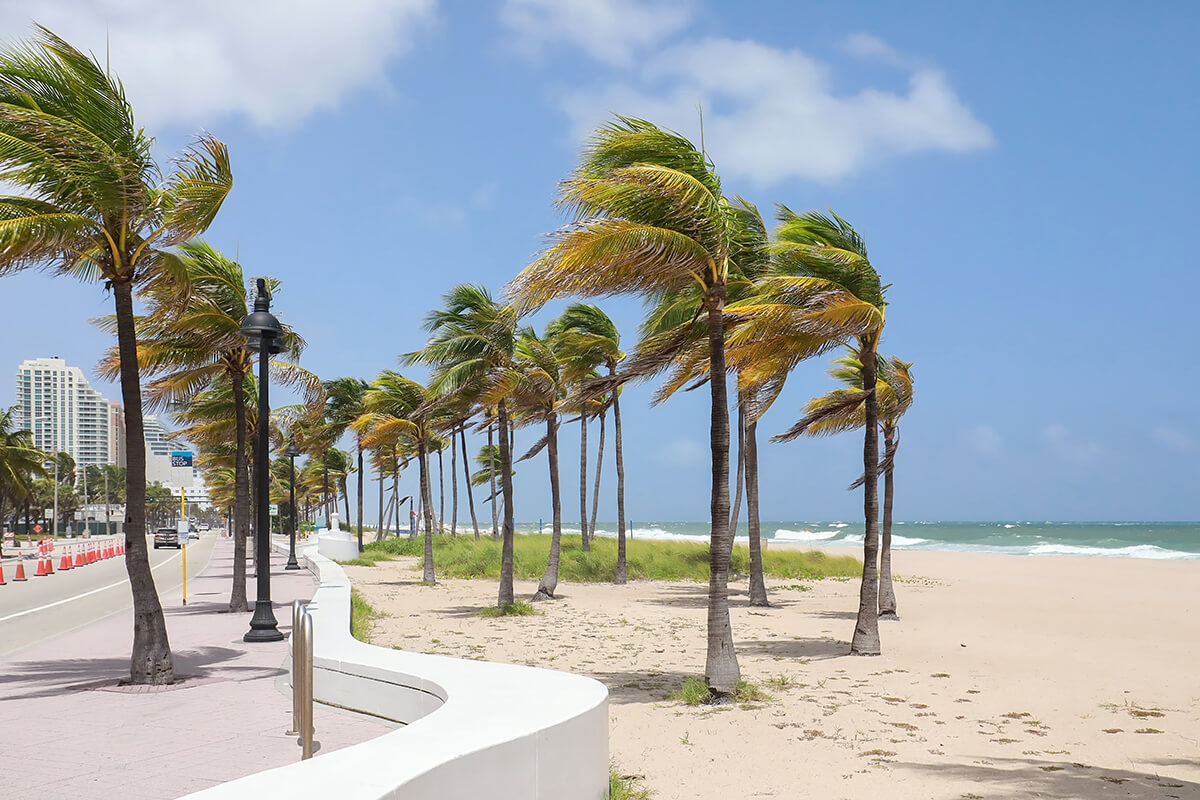Hurricane season runs from June 1 through November 30, it’s important to remember that the peak of the season is September 10, with the most activity occurring between mid-August and mid-October, according to the Hurricane Center.
Before a Storm Hits:
- Prune weak branches and trees around your home. Use hearty native plants in your landscaping design. Use mulch instead of pebbles around plantings (pebbles can cause damage in high winds).
- Ensure drains on terraces and balconies are not clogged and allow water to flow freely.
- Replace standard windows with impact resistant window systems.
When a Hurricane is Coming:
- Move personal possessions to the center of your home, away from windows and doors.
- Remove all patio furniture from your yard or terrace, and store it in your garage or house.
- Fill the fuel supply for your back-up electrical generator. Place important documents, such as insurance policies, bank information, credit card information and important contact numbers, in a plastic container.
After a Hurricane:
- If you discover water in your home, contact a restoration company immediately to begin the water extraction process.
- Run the air conditioner to dehumidify your home.
- Remove any wet items and store them in the garage, if possible.
- Call your insurance broker to report any damage.
Plan Ahead:
- In the event of an evacuation:
- Become familiar with your community’s disaster preparedness plan.
- Know your evacuation route and have a predetermined destination in mind.
- Select a point of contact and common meeting place if separated during the evacuation.
- All vehicles should be well fueled. Gas will be scarce.
- Make sure you bring essential items (including cell phone, flash light and National Oceanic & Atmospheric Administration [NOAA] radio).
- If you are unable to evacuate:
- Identify a “shelter” room in your home. This enclosed area should be on the first floor, in a central part of the home with no windows.
- Remain in contact with neighbors who are staying in their home during the storm.
- Park your vehicle, on high ground if possible, parallel to the building. Remove insurance information from the car for safe keeping, and take pictures of your car before the storm.
- Make arrangements to use alternative means of communication.
- Consider installing a gas-powered generator to power your home in the event of a power outage. Test and refuel it regularly to ensure it is operational at the time you need it.
- If flooding threatens the home, turn off electricity at the main breaker. Unplug or turn off major appliances.
For the latest storm information, visit each county’s emergency management website:


